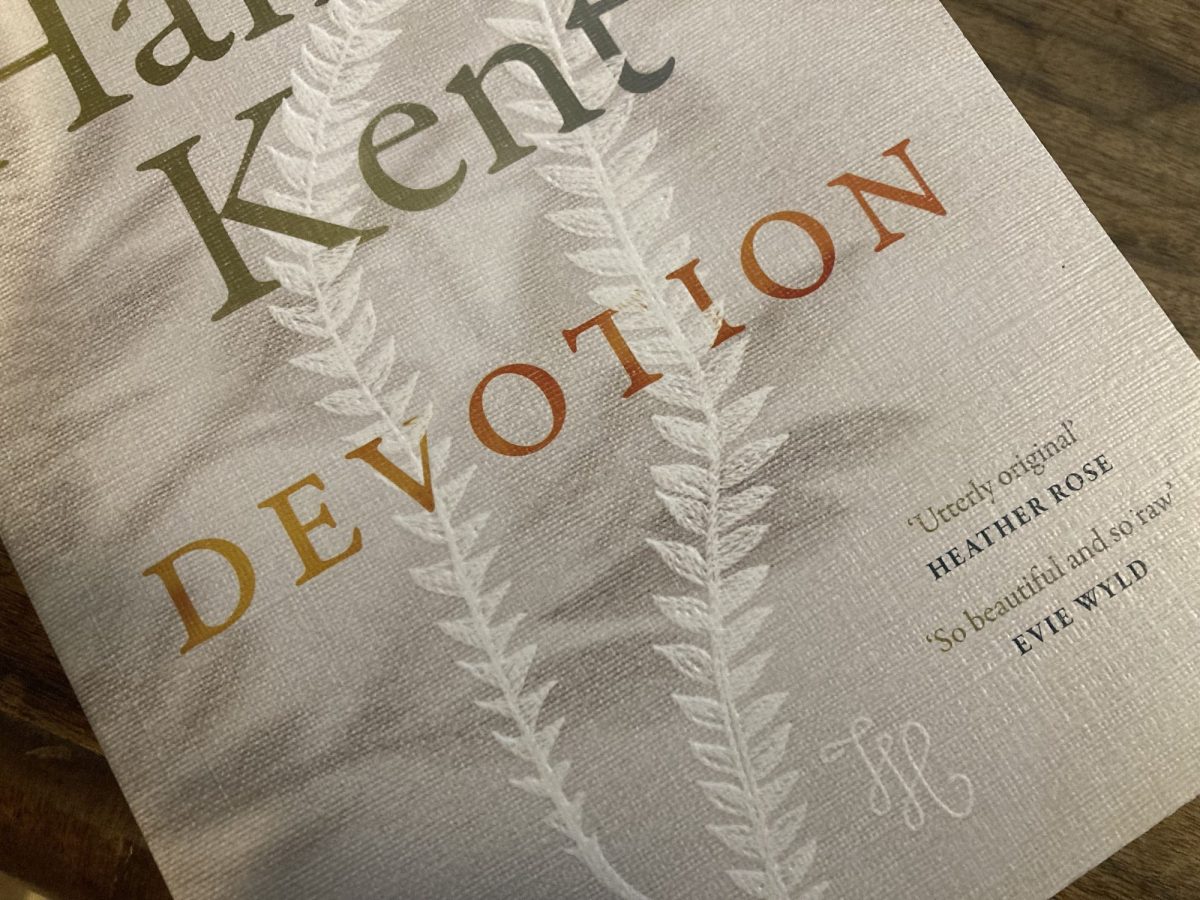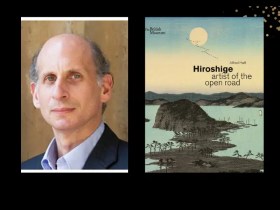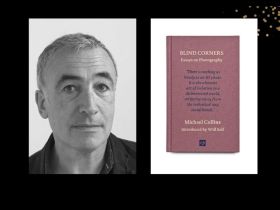Recently, Simon Manning, a publisher of Simon & Schuster’s US imprint said he’ll no longer require the authors in his stable to obtain endorsements for their books (note that in the US, these are known as ‘blurbs’). Writing in the Publisher’s Weekly, Manning says that, during his research, he discovered that the covers of many well-known and successful books are unadorned with hyperbolic praises from other authors in their first printings.
Such books included Psycho, Catch-22 and All the President’s Men. He also points out – not unreasonably – that in no other creative industry is this practice common or expected. After all, he says we don’t see a filmmaker appear on another filmmaker’s movie poster.
ArtsHub reached out to the book community to survey the requesting and delivery of book endorsements, which is still rife in this industry. It’s rare to pick up a publication and not see a quotation on the cover from an enthusiastic writer-ally or paragraphs of shining affirmations within the opening pages from a number of writers. But are endorsements a burdensome, unnecessary and dated requirement or do they still serve a purpose?
The answers are mixed.
Complete waste of time
Leonard James is resolutely against them. “They are a complete and utter waste of time for everyone,” he says, “for the reader and for the person roped into giving the lukewarm endorsement.”
“To me they often ring hollow. The same phrases are repeated and it doesn’t feel always genuine. Sometimes I play cover bingo with certain word,” offers Jem Tyley-Miller. “I’m not looking forward to asking (begging) for someone to do one for my book when the time comes either. I’d rather concentrate on the blurb [description] because that’s what makes me buy a book.”
A J Collins also does not pay any attention to them. “To me, they feel like an advertising gimmick. I got them for my previous books (and was very grateful for the time the contributors spent) because they seemed obligatory. I prefer word of mouth or reviews on Goodreads,” says Collins.
Christina Marigold Houen concurs that endorsements all read much the same, “as if they’d been written by AI. I judge a book by itself, not what others say of it”.
Can you trust them?
Annette Marfording regards them as “[mostly] given by author friends who may have been asked by the author and feel obliged to say something positive’.
“As a reader I don’t trust them,” she adds.
Annie McSweeney also doesn’t lend much weight to endorsements. “I ignore them. They’re often given by someone who knows the author. I know one well-known author who gave a glowing endorsement for a book and then told me how crap it was.”
“I’ve always wondered about the value of publishers printing a contextless adjective from a notable person’s endorsement on a book cover,” adds Eleanor Hogan. “‘Magnificent’ could have been excised from ‘magnificent crap’.”
Moreover, Katerina Cosgrove says, “Endorsements can become devalued for me when I see the same names endorsing so many books over the years, both in Australian and overseas. It doesn’t seem authentic.”
A writer who wishes to remain anonymous agrees. “The Australian literary scene is really small. When people are asked for endorsements they usually give them. So they honestly don’t mean very much. I know that most of the time it’s mates lifting up mates, rather than a genuine endorsement of the book.”
The etiquette and imposition of asking
Often times, writers quail at the prospect of reaching out to anyone in their literary circle for an endorsement. “It’s embarrassing to request them,” says Dennis Altman, “but I cherish several I’ve had over the years. Though I acknowledge they tell us more about the writer’s world than the book.”
Jasper Peach agrees, “It’s real awks asking for them and I still feel a pang of RSD (rejection sensitive dysphoria) when I think of the people I approached who didn’t respond at all. Ouch!”
Another writer, ‘anon’, says, “Part of me would like to see a return to the so-called ‘purity’ of books published up til approximately mid last century, when would-be buyers had to read a few pages (at least) to work out if they liked it, or wait for a reputable review.
“And part of that is because the idea of imposing on someone to write a ‘puff’ for a book of mine – when and if that should ever come into being – fills me with dread.”
A layer of protection?
When working as an in-house editor, Nicola Redhouse says that she was the one who reached out for endorsements, not the authors themselves. “Otherwise it puts the potential endorser in a difficult situation if they weren’t willing to do it or declined after reading it. I would just let the author know they were unable to do it. With her author’s hat on, Redhouse’s own agent has approached potential endorsers on her behalf.
Other marketing techniques may have to step up
Another anonymous writer tells ArtsHub, “I would admire an author’s courage, particularly a debut one from a bona fide publisher, to forgo the usual glowing recommendations for their first book. Such books, if they were to remain the exception and not the norm, might even gain additional attention for that reason.
“But it will surely put additional marketing pressure on other aspects of the publication, such as cover design, online reviews, Goodread ratings, social media etc. In other words, removing endorsements by other authors may remove one potential source of advertising artifice from the equation, but it won’t necessarily make any of the other information sources more trustworthy or appealing.”
Excerpts of the work can be more important
Several respondents mention that, though endorsements play a small role, they are more likely to be swayed by seeing some actual content from the book. “I do read them on book covers,” Shey Marque admits, “although I’m generally more persuaded by reading excerpts of the work.”
“I once asked Les Murray to endorse a book and he sighed wearily,” says Jennifer Compton. “Not because he didn’t like my work, but because he was asked so much. He said it would be much better to pick out a few lines of poetry and put them in bold in the back cover. Let the work entice the possible reader, but maybe that only works for poetry.”
What about endorsements previously?
Sometimes you don’t have to use new words, but can recycle previous endorsements. Beth Spencer points out that she doesn’t like asking people to work for nothing so she tends to “reuse something someone has already written somewhere … a past review, in a letter of support, on socials … and that might give some context to this book for someone browsing’.
“If I edit for brevity or adapt in any way I use ellipses and run it by them first and ask them if they are OK with this version and for it to be used for this purpose. You want a sense of honesty around your book as it goes out into the world,” says Spencer.
Depends on who does the endorsing
“There are certain authors whose endorsement I would absolutely go on and purchase the book,” says Redhouse. Julia Ferracane agrees. “I do like to read the endorsements, particularly if they come from an author I love,” she says, with Angela Savage adding, “When you read and write endorsements regularly, you develop the ability to discern a polite puff from a rousing recommendation.”
Some authors are certainly worth the listen: “Well, if Maggie Nelson endorsed a book I picked up in a store and [that I] knew nothing about, I’d surely flip through it and give it serious consideration,” Heather Taylor Johnson says.
Another anonymous writer also attests to star power. “When it’s a name that doesn’t often give endorsements, and they give it a glowing one, I think it helps with the marketing and promotion. If a reader really loves a particular kind of young adult fiction, for instance, they’re more likely to buy and read a book if one of their favourite authors has endorsed it.”
Speaking of the allure of star wattage, Craig Buchanan says “I didn’t think I was overly influenced, but I just bought a book based 80% on a cover endorsement from Val McDermid, so I guess I’m not as immune as I thought I was.”
Kristin Martin says, “If books haven’t won awards yet, I feel they are a good way to let me know what I might like.”
Vikki Petraitis adds, “I just got a UK agent who said she knew my book would be good, because Candice Fox had endorsed it.”
Community Building
Giving praise and encouragement, however, doesn’t necessarily have to be a cynical exercise.
Danielle Binks explains, “In the romance genre I find authors to be so community-driven that it’s rarely just an endorsement, but an author fully supporting a fellow author in numerous ways and often in the same genre. Sarah MacLean, for instance, goes to bat for many debut and POC historical romance authors and her recommendations I’ve come to really value.
“I know my middle grade novel got acquired by a North American publisher because she saw Melina Marchetta had ‘blurbed’ me and Melina was a favourite author of hers.”
Read: 30 years in the making: a world-first for Beckett’s Krapp’s Last Tape
Binks adds a caveat, however: “I don’t know that endorsements mean that much to the average, say, Big-W-couple-of-books-a-year-for-the-holidays buyer.”
Here to stay
Whether you like them or not, it seems as though endorsements are here to stay in Ozlit as part of a publisher’s suite of marketing practices. If you can read between the puffery, the majority of them do provide an indication of what’s between the book covers.
As someone who’s given endorsements and asked for them for my own books, I suggest the best practice would be to move past some of the more hyperventilating adjectives and read them for the content description, in addition to the blurb. As Compton says, “They are a label stuck to the shipping container indicating what goods are inside.”





